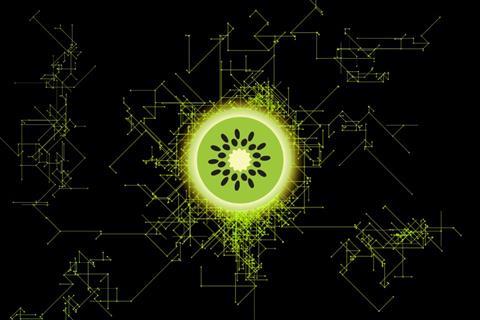
The short answer is… neither! Let me explain.
On a technical level, blockchain is very much a reality. Not only is the technology being used to underpin the cryptocurrencies we hear so much about, but a myriad of mature business sectors are beginning to investigate or even use blockchain in an attempt to solve some of their inherent challenges, such as achieving better traceability.
Not surprisingly, the fresh produce industry globally is up to its armpits in such pilots, as are notable retailers such as Walmart, Carrefour and others. Blockchain, therefore, is most certainly not a myth but fast becoming a reality.
Does blockchain technology offer salvation when it comes to all the produce industry’s problems relating to traceability? It most certainly is not, yet it can be an incredibly effective tool for achieving transparency. This statement deserves to be explored in a little more detail.
Traceability has long been the nirvana the produce industry has been aiming to achieve in relation to food safety, ever since the first accountability-focused pieces of consumer protection legislation started to emerge in various jurisdictions in the late 1980s and early 1990s.
For traceability to work, supply partners need to develop an openness and willingness to share data that is being reconfirmed at every physical step in the supply chain – and if just one supply chain participant is not convinced that it is in their best interest to share data, traceability will end up being compromised.
Traceability is like a powerful torch. When the torch is turned on in the darkness, its beam will illuminate whatever area the torch is pointed at. Areas not covered by the torch beam will remain in darkness, however, until the beam is shifted towards the next area identified for inspection. The person holding the torch determines where the beam goes, so they might not get a complete picture of entire area.
Transparency, on the other hand, is like finishing your work in a room with a dimmer light-switch coupled to motion sensors. When no motion is detected, the light dims down; if motion is detected, the light returns to its full brightness, enabling an instant appreciation of what the room contains, where objects are placed and how the objects are behaving at any given point in time.
Time to adapt
Blockchain technology is a smart enabler that can achieve transparency, given favourable conditions. To get to that point, the way existing business is being conducted will have to be adapted. Information that was previously considered proprietary will have to be shared. Data pipelines that run along produce supply chains must be running at least at the same speed as the product itself and in many cases even faster without data accuracy being compromised. This has consequences for process design and management, and signals the need for change.
Change is not something people are always instantly enamoured with. Yet without change, true transparency will continue to evade us. Mindset, therefore, has to be the starting point. At the technical level, a blockchain is nothing other than a sophisticated database with additional functionality and perimeters, working across multiple enterprises. As long as the mind continues to be constrained by traditional business methods going back to the days of the abacus, blockchain technology cannot contribute to improving and future-proofing business models and their supply chains.
Introducing blockchain technology into the fresh produce industry, therefore, needs to start with an appreciation for a conceptual overhaul of the way in which business is conducted. Knowledge needs to be shared within supply communities in an accurate, timely and holistic way to achieve improved results for the entire supply community and not just individual participants, with the entire rethink needing to be market- and consumer-focused rather than production-driven. The techies will do the rest, once a clear direction has been achieved.
If, and only if, reconceptualised business models can get underway and are sustainably maintained, blockchain technology will have a reasonable chance of heading in the general direction of wherever that ‘salvation’ label might eventually be applied.
This comment piece was originally published by the International Federation for Produce Standards and isrepublished with kind permission.
Dr Hans Maurer is a founding director of the the Agri-Chain Centre, New Zealand's fresh produce knowledge hub. He is also an executive committee member of United Fresh Incorporated and the New Zealand director on the board of the International Federation for Produce Standards.



